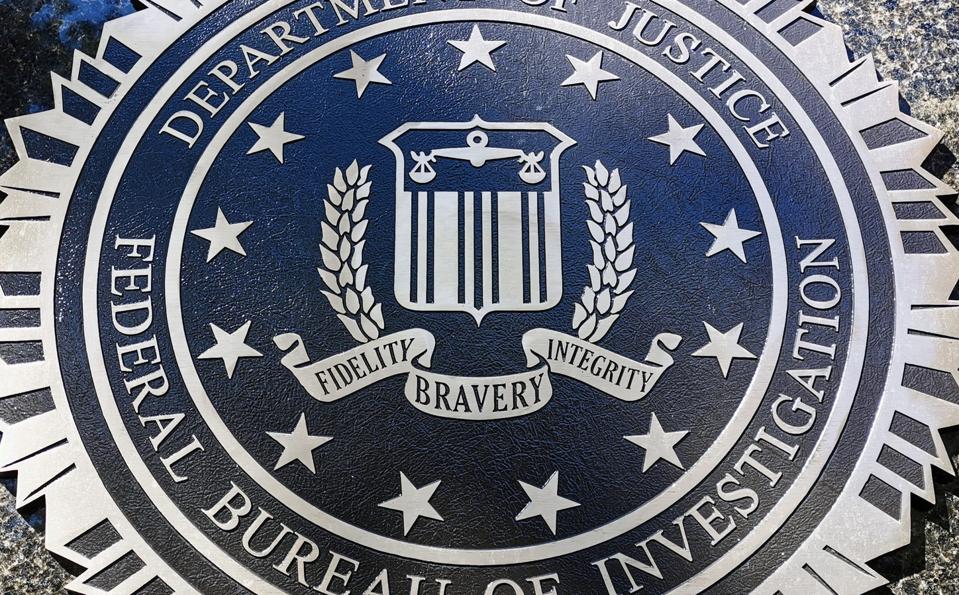FBI Warning-Do Not Take These Calls On Your Smartphone

These calls are not what they seem.
NurPhoto via Getty ImagesRepublished on July 6 with new police and sheriff department warnings as a new wave of attacks target smartphone users over the holiday weekend.
This is not the FBI. That was the stark warning from the bureau in June, as attacks on smartphone users frightened victims into sending money to avoid arrest, “spoofing FBI phone numbers nationwide and impersonating government agents.”
ForbesWhy Google’s Unbeatable Pixel Upgrade Is Bad News For Android
Less than a month later and those warnings are now being amplified. Both ATF and U.S. Marshals have just issued similar alerts as attackers widen the net. ATF is “working with the FBI, which is actively investigating this scam. The public is urged to exercise caution and avoid sharing personal or financial information with unsolicited callers.”
The U.S. Marshals will “NEVER call you to collect money or resolve a court case,” warning that scammers use “real USMS names” in their attacks. “HANG UP,” it says in its own public alert, “and REPORT to your local FBI office.”
The FBI says callers trick victims “into thinking an arrest is imminent unless they send money,” which does not happen. “The FBI will never call you demanding money to get out of criminal charges. It’s a scam. Hang up and visit the FBI's ic3.gov to file a report.”
These attacks are not limited to federal agencies, and we have seen a raft of state and local reports warning of the same attacks. The New York State Police has alerted citizens to “an ongoing phone spoofing scam in which scammers impersonate members of law enforcement or government agencies in an attempt to solicit sensitive personal information from individuals across New York State and beyond.”
ATF says the attacks impersonating its own agents instruct victims “to purchase Apple gift cards in amounts of $500 or $1,000 to ‘clear a red flag’ from their accounts. Victims are then asked to provide gift card numbers to the callers.”
In its July 2 public advisory, ATF says citizens should “report suspicious calls to the ATF at 1-888-ATF-TIPS or the FBI’s Internet Crime Complaint Center at www.ic3.gov.” And anyone falling victim should “contact local law enforcement immediately.”
ATF will never “call or email private citizens to demand payment or threaten arrest. You will not be asked to wire a ‘settlement’ to avoid arrest; ask you to use large sums of your own money to help catch a criminal; request you send money via wire transfer to foreign accounts, cryptocurrency, or gift/prepaid cards; [or] call you about ‘frozen’ Social Security numbers or to coordinate inheritances.”
The FBI warns there are many versions of this scam, “and they all exploit intimidation tactics.” Callers use “an urgent and aggressive tone, refusing to speak to or leave a message with anyone other than their targeted victim.” They also warn victims “not to tell anyone else, including family, friends, or financial institutions.”
There should be doubts as to the variety of these law enforcement impersonation scams — every avenue is being explored. These include a warning on Thursday that a jury scam is “using real police officer’s names,” with one police department warning citizens that callers use the name and ranks of serving officers, warning that jury service had been missed and a payment was due in order to avoid arrest.
Similarly, police forces warn scammers pretending to be police officers are demanding money for missing court appearances. In reality, it doesn’t matter what script is used, when phone numbers can be spoofed it’s easy to gain a victim’s confidence.
Even the FTC has been the subject of these impersonation scams, with victims receiving calls warning of “fraudulent activity on their Apple ID.” Again the financial ask is spurious, but works given the threat of fines or arrest.
As the FBI says, no federal agent “will ever call or email you to demand payment or threaten arrest.” If you ever receive any of these calls, hang up and do not engage. If you have any doubts, call local law enforcement and explain what has happened.
Remember, the lures can change. This holiday weekend we have seen new warnings for citizens to beware the rising tidal wave of phone scams. One sheriff in illinois took to Facebook to issue a warning to residents as a new scam takes hold.
“Friends and neighbors, I want to personally make you aware of a troubling scam that’s been targeting families in Illinois. If you receive a phone call or text claiming that a loved one needs money to be placed on GPS monitoring to get out of jail — hang up immediately. This is a scam.” How’s that for a variation on a theme.
As with the federal agencies, the Illinois Office of Statewide Pretrial Services says it “does NOT charge money for supervision or GPS. No legitimate agency will ever ask for payment over the phone, especially not by prepaid cards, Zelle, or gift cards. These scammers use fear to pressure you into acting quickly. Don’t fall for it.”
And the risk to smartphone users is clearly not just confined to malicious calls or texts. A police force in Virginia is now warning “of a cellphone scam, in which victims are being asked to lend their phone” to help out a stranger facing an emergency situation.
“If a stranger asks to borrow your phone and claims it is for an emergency. The tactic is followed by scammers to access personal info or transfer money through payment apps. Red flags to look out for include the stranger pressuring you urgently, asking to step out of sight with your phone and being unable able to provide clear details.”
Google warns that “even as people become better at spotting potential scams, transnational crime groups continue to evolve their tactics and defraud people around the world.” That’s why the Global Anti-Scam Alliance reported that in just 12 months, scammers stole $1 trillion globally. [And in the U.S., the FTC recently shared data in March showing a 25% year-over-year increase in reported losses to fraud.”
ForbesGoogle Warns All Gmail Users To Upgrade Accounts—This Is WhyBy Zak Doffman
These groups operate outside the reach of U.S. law enforcement, whether acting directly or selling or renting kits to enable other operators to carry out attacks. “Scammers are more effective and act without fear of punishment,” Google says, “when people are uninformed about fraud and scam tactics.”
That’s why you’re seeing a raft of law enforcement warnings to make sure that people are aware and know what to watch for even if numbers are being spoofed to make detection much more difficult. Stick to the basic rules and don’t ever engage.









